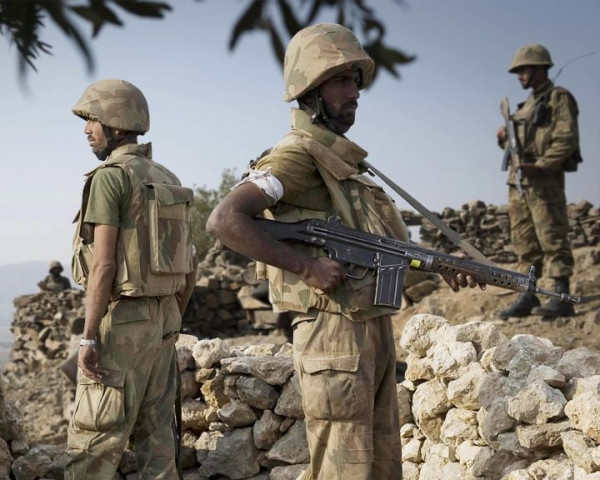Pakistan restores Afghan border centers in step forward
Pakistan has restored liaison officers at coordination centers on the Afghanistan border.

But the US-led coalition's supply lines that run through Pakistan remain closed since the November 26 incident and it is both in the interests of foreign forces as well as Pakistan that the routes be opened sooner rather than later, the alliance said.
Ties between the United States and Pakistan are fraught, with Islamabad blocking the Afghan supply line for one of the longest periods yet. Last week, US lawmakers agreed to freeze $700 million in aid to Pakistan demanding it disrupt the movement of fertilizers used in making homemade bombs, the deadliest killer of foreign troops.
But the top Nato commander in Afghanistan, US General John Allen, had spoken to the Pakistani army chief General Ashfaq Kayani and there were signs of progress over the last few days, Brigadier General Carsten Jacobsen, a spokesman for the International Security Assistance Force (ISAF), told reporters.
"We have seen liaison officers, Pakistani officers, return to border coordination centers, General Allen has spoken to General Kayani, so we are moving in the right direction," he said.
The border control centers were set up to help Nato and Afghan forces and their Pakistani counterparts on the other side of the porous border to coordinate operations against militants and avoid the kind of the incident that occurred last month in which two Pakistan army posts in Mohmand came under Nato fire.
Pakistan said the United States had carried out an unprovoked attack, an accusation rejected by Washington. An investigation has been ordered and Jacobsen declined to go into details of the incident ahead of the results.
But he urged Pakistan to reopen the two supply routes into Afghanistan, which carry just under a third of all cargo for foreign forces fighting in the landlocked nation.
"It is in our interest as well as Pakistan's interests, for economic reasons that they reopen these routes sooner rather than later," he said.
Night raids
Jacobsen also defended the use of night raids on Afghan homes to hunt down insurgents, despite yet another call overnight from Afghan President Hamid Karzai to end the practice, deeply hated by most Afghans.
"Night operations remain the safest form of operations conducted to take insurgents off the battlefield," he said, adding that in 85 percent of such raids not a single shot is fired. The raids have accounted for less than one percent of civilian casualties, he said.
Karzai on Sunday asked Nato not to enter Afghan homes for such operations after a raid in eastern Paktia province in which he said a woman was killed and four people wounded.
Foreign forces fighting in Afghanistan have become more accurate in conducting night-time raids on homes, but they have stepped up the number and scope of the operations so they affect more civilians, a report by the Open Society Foundations and The Liaison Office said in September.
Jacobsen said the way forward was greater involvement of Afghan Special Forces in these raids.












1724319076-0/Untitled-design-(5)1724319076-0-208x130.webp)






COMMENTS
Comments are moderated and generally will be posted if they are on-topic and not abusive.
For more information, please see our Comments FAQ